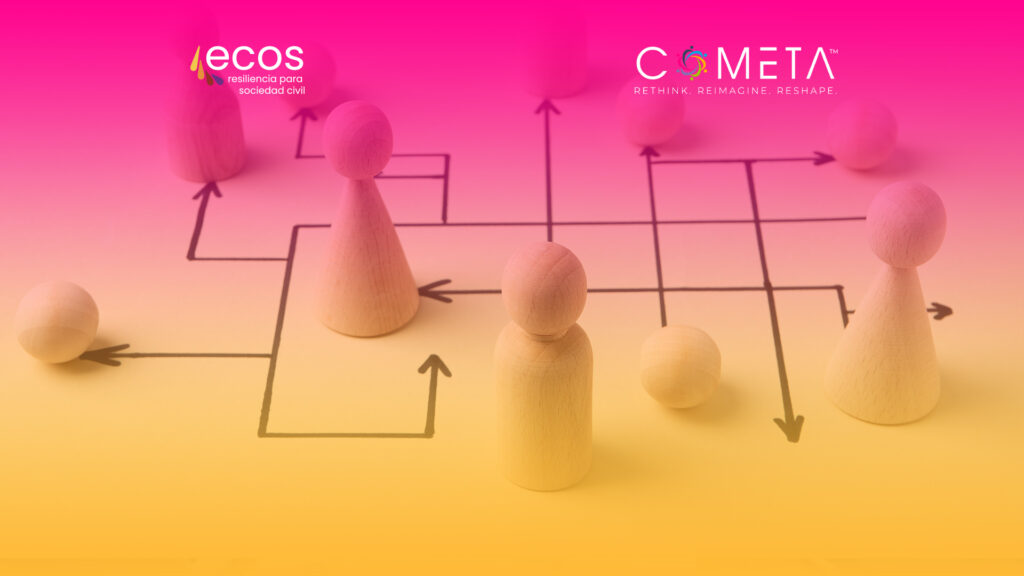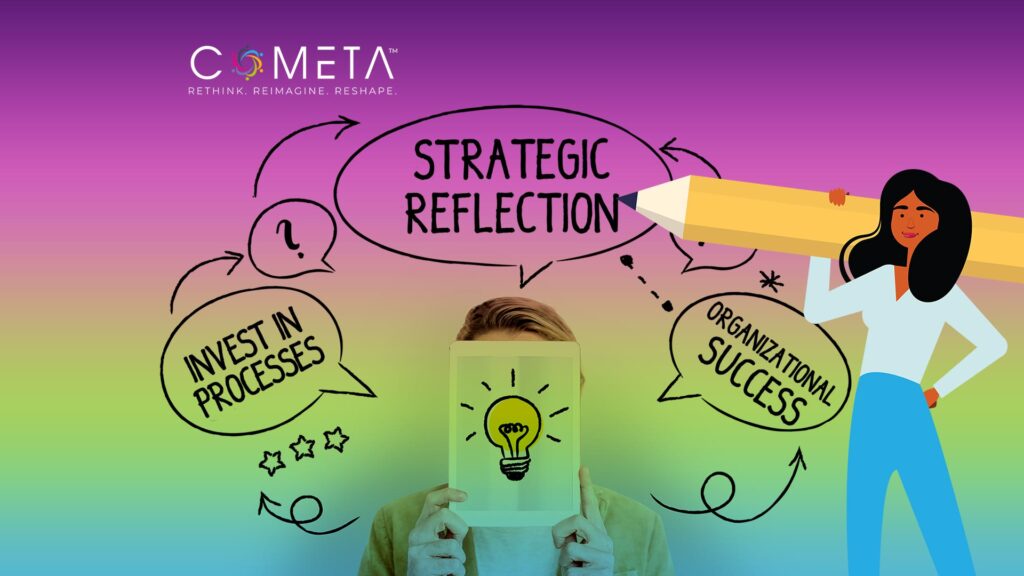Theory of Change for Networks: The Key to Success in a Good Process

Theory of Change processes for networks are as critical as those for civil society organizations. They allow us to reflect on the impact we want to achieve with our work, clearly define our objectives, and take the necessary steps to achieve them. Arianna Bizzoni, Senior Consultant at Colectivo META Why is Theory of Change relevant […]
Why should we invest in strategic reflection processes as the key to organizational success?

What does it mean to invest in strategic reflection? Strategic thinking helps an organization to think critically about itself and its work: According to the Royal Spanish Academy, “strategy” is defined as: Being strategic involves making optimal decisions, innovating, and creating. Investing in strategic reflection is an organizational way to stand out and innovate vis-à-vis […]
Systematization of experiences as knowledge production

When we think on Systematization of experiences, we do not associate it with knowledge production. Instead, we see it as a tool for documenting, information gathering, and collecting facts in an orderly manner.Information gathering is related to collecting data and official records that prove facts. However, for civil society organizations, their experiences are an invaluable […]
Diversity, equity and inclusion

Civil society organizations promote social justice through the protection of human rights. Consequently, they are often questioned about issues of diversity, equity, and inclusion in their work outside the organization and how they incorporate and implement these values within their organization. Why should civil society organizations have internal discussions about these values? Since civil society […]
What is the Theory of Change?

The Theory of Change (TOC) helps us identify the impact we want to achieve as civil society organizations. It encompasses both the change we seek and how we will achieve it. Therefore, the TOC is our roadmap to our organizational goals. What should a Theory of Change include? The TOC needs a combination of elements […]
How to work the strategic vision in civil society

Previously, we discussed the relevance of conducting a strategic reflection process. Now, we share with you what it takes to have efficient strategic reflection planning. This time, we look at how a strategic vision process helps an organization know itself and achieve its desired outcomes. What is required for an efficient strategic vision process? First, […]
Strategic resource management for civil society organizations

Civil society organizations know the need for resources to conduct our activities. But do we know what they are and how we can use them? In this article we will talk about strategic resource management. Keep reading and find out the relevance of an institutional budget to represent the organization’s strategic priorities instead of the […]
The sociopolitical context in Mexico and Central America: strategic reflections for civil society organizations

An essential practice for designing support programs that add value to organizations is analyzing the contexts in the countries in which we work. This analysis allows us to be informed about the social, political, and economic aspects that impact the work of the organizations we work with and, therefore, better adapt our support. Between 2023 […]
Capacity building of facilitators on strategic thinking in the Global South

In October 2023, COMETA started the capacity building of facilitators on strategic thinking (FOFA in Spanish acronym). We implemented the Theory of Change (TOC) methodology with civil society organizations in Central America, a region where the closure of civic space is increasing, complicating the provision of support processes. COMETA is commited to capacity building of […]
Results-based evaluation in civil society organizations

When should we worry about conducting a results-based evaluation? For COMETA, the best moment is when civil society organizations (CSOs) want to understand their achievements in detail or want to give the stakeholders and donors evidence of their results. Also, when we want to share our progress with the stakeholders and the public. If we […]
